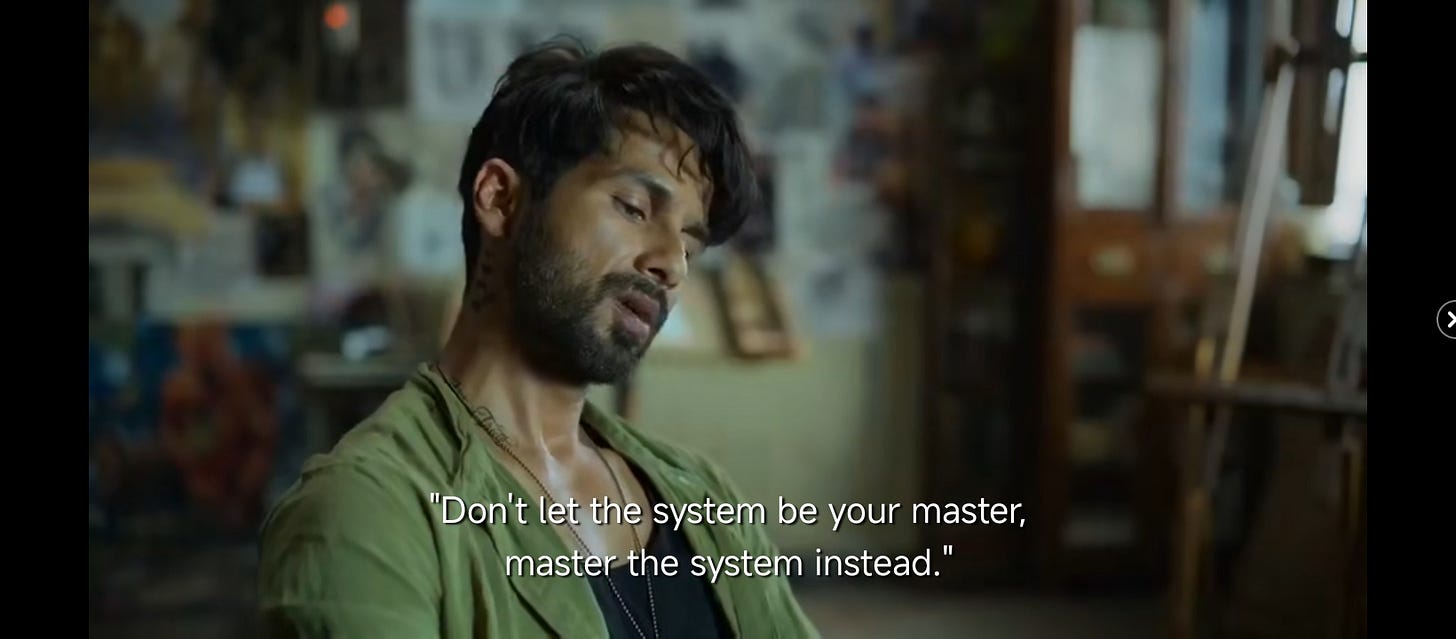
I heard my neighbour next door scream at 2 a.m.
There was a thud. Then a slap. Then a voice — begging to be free — followed by a long, heavy bang. For a moment, I was certain something fatal had happened. I was so worried that I barely slept however it seemed my worry was for nothing because she was back outside the next day arranging tomatoes on her tray like nothing happened.
It seemed she had an abusive husband, but she never spoke up. Why? Because “divorce was ungodly”. Because people would say “she was weak”.
Because in Nigeria, silence is not just golden. It’s a survival strategy.
Farzi - Movie series
From a young age, we're told not to "talk too much," not to "wash dirty linen outside." Pain becomes something private.It’s why someone battling depression is told to “pray harder.”Why someone stuck in a toxic marriage is advised to “endure — for the children.”Why a struggling graduate is reminded that “at least you’re not in the hospital.”
“Just manage.”
“E go better.”
We hear these things so often they become silencers and no not the ones attached to a car. Most times, Joy is often rationed. People whisper their wins so they don’t attract “bad energy or village people”.
And suffering? It’s spiritualized. Your reward is in heaven, they say. Sometimes, I wonder if my neighbour had finally seen her reward in heaven. Did I mention that she died yesterday? It was, perhaps, the last straw.
Silence wears many faces in Nigeria.
It looks like a woman bruised from last night’s beating, still showing up to work like nothing happened.
It sounds like a man skipping meals so his children can stay in school — but never saying a word.
It lives in the girl who was abused by her uncle, yet told to “forgive and forget” because “family comes first.”
It looks like a girl child forced to study a course she never wanted — juggling school and several side jobs, just to survive.
It has the ugly appearance of a single mother working two jobs to keep her dead child fed and a roof over their head.
I should add that Silence is a common feature of grief.
We don't just endure pain — we swallow it whole, then pretend it never happened.Because speaking out is seen as disgraceful.Because asking for help is weakness.Because silence is safer than shame.
But the bitter truth is silence is not free.It costs a whole lot - our sanity, our safety and our lives.
It takes the colleague who always looked tired — until you hear she took her own life.
It’s swallows the man who drank himself numb every night because no one ever let him cry.
It gives up the woman who died in an abusive marriage because her pastor told her to “pray through it.”
It’s the youth corper who left home frowning to northern Nigeria, and never made it back.
It’s the future filmmaker who imagined his death so many times that he finally decided to act it out.
It’s the future writer who wrote and rewrote suicide notes — until she finally got the last draft right.
It's you, it's me, it's any Nigerian pushing and pushing through the so called “austerity measures” and the thing is the silence doesn’t stop with us.
Children watch their mothers shrink and call it submission.They see their fathers swallow grief and call it masculinity.They learn quickly that to speak is to stir trouble. That to feel too deeply is to be mocked.So they begin to whisper their pain.Then they stop whispering at all - Silence.
Maybe strength can come from suffering —But not every suffering is strength in disguise.
Some pain just hurts. Some wounds don’t build character. They just bleed.
Maybe the real danger is not in the suffering — but in how we’ve learned to clap for it. And maybe the first act of rebellion to it is to say: This hurts, I need help.



